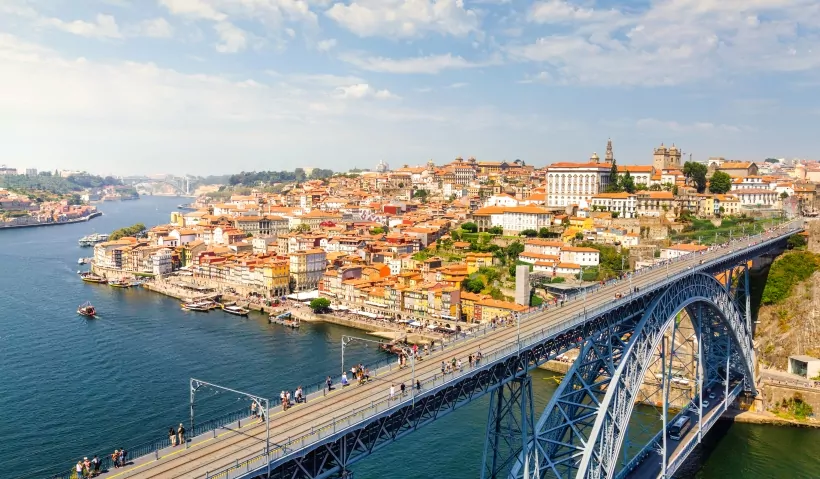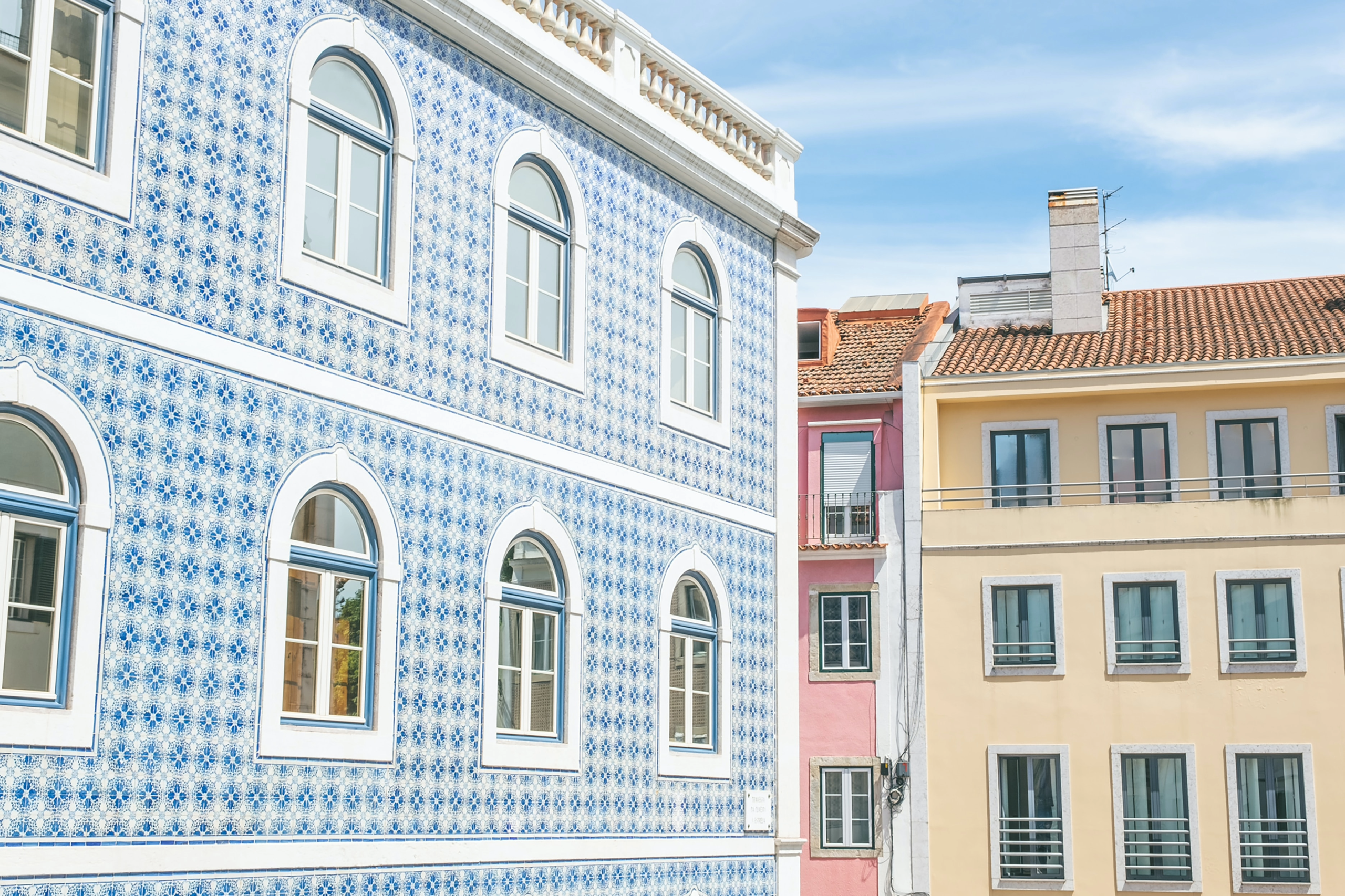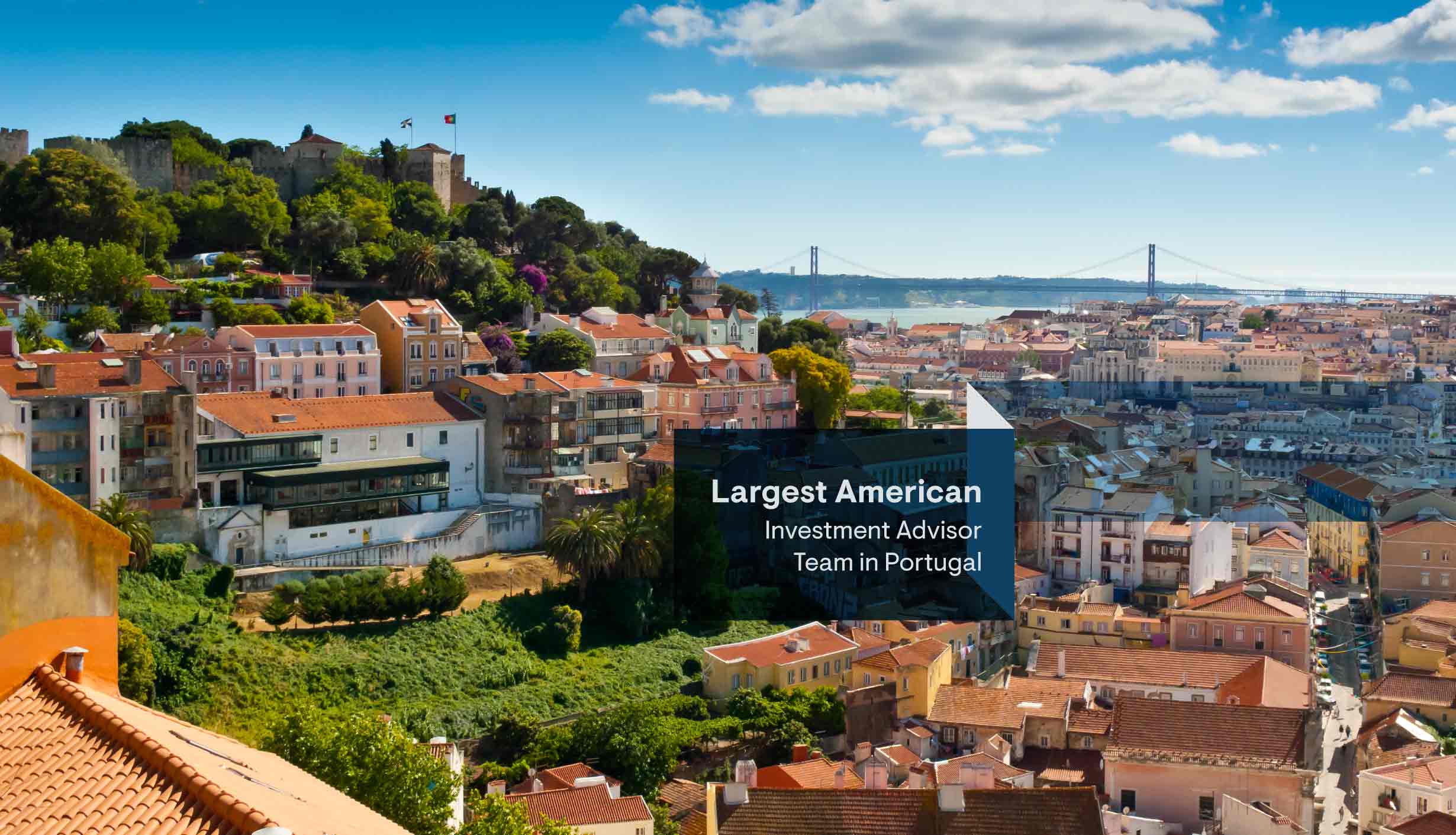Portugal Expat Life: Living in Portugal as a Foreigner
11 min readWhen we think about why expats consider moving to Portugal, the safety relief is some of the top reasons. Portugal is the 3rd safest country in the world while ranking 4th globally as one of the most peaceful countries in the world.
Many expats chose Portugal, the country that combines all the best bits of Europe. From beaches to cities, Portugal’s cities are one of the most picturesque yet the lowest costs of Europe. Expats in Portugal enjoy the fats becoming popular destination for expats and digital nomads.
If you are also considering Portugal as your next destination, let us explain what you will need to know on your adventure. Explore the expat life in Portugal, learn about the visa options, discover the best places to live in Portugal as an expat and understand the pros and downsides of being an expat in Portugal.
Here is what you will discover in this article:
Portugal Residency for non-EU Citizens
Portugal offers several attractive residency programs to non-EU citizens. As a foreigner in Portugal, you have several options for becoming a resident. Here are some of them:
After you reside in Portugal for 5 years, you can apply for permanent residency. As a non-EU/EEA citizen, you need to apply for a long-term visa before arriving in Portugal.
Some of the requirements include;
- The applicant is expected to be 18 years old or older
- Living in Portugal for 5 consecutive months
- Not leaving the country for more than 6 months in a year or 12 consecutive months ever
Portugal’s Golden Visa Program
Portugal Golden Visa is another suitable option for foreigners who want to get residency in the country. You can invest €500,000 or more in specific investment funds of Portugal and be able to obtain right to get residency with minimal stay requirements.
As an expat, Portugal Golden Visa lets you get a five-year residence by investment. You can also live, work, and study in Portugal alongside the freedom of travel in Europe’s Schengen Area.
If you are a non-EU/EEA or Swiss national, you are eligible to apply for the Portugal Golden Visa. You need to be at least 18 years old and have a clean criminal record from your home country and Portugal.
Although there have been a lot of talks on the news about Portugal Golden Visa’s latest version and if the program is ending, the program is active and has applications in 2024 and plans to continue with new improvements, for example, on the citizenship law. The country now lets applicants of Portugal Golden Visa, counting from the first residency application, whether approved or not, be eligible to apply to become Portuguese citizens in five years. It is considered the fastest citizenship application in European countries through the Golden Visa application.

Portugal D7 Residency Visa
Portugal D7 Visa is suitable for expats who are retired or not to prove they have passive income. It can be either a pension that is at least €709.10 per month to qualify for residency. Mostly, retirees who are willing to experience a sunny European lifestyle prefer this visa type.
This visa type is also known as the Portugal Passive Income Visa or Retirement Visa. It is another option to get permanent residency for non-EU/EEA citizens.
The qualification for a D7 Visa includes a steady passive income covering your living expenses in Portugal. As a single applicant, you are required to prove having €8,460/year passive income yearly to apply for a Portugal D7 Visa in 2024.

Portugal Digital Nomad visa (D8 Visa)
When it comes to the Portugal D8 Visa, which is also a digital nomad visa, you need an active income to prove it. If you are working remotely for a company outside of Portugal, you can reside in Portugal as an expat by applying for this visa type. To enable this, you are expected to demonstrate a sufficient income of around €4,389 per month to get your Portuguese residency. Then, you can benefit from this visa and join the growing trend of getting advantages in independent locations as a remote worker.
This visa type is also beneficial in terms of tax. A Portugal Digital Nomad visa means 0% tax on foreign income. So you just pay 20% tax on income earned in Portugal. Having an opportunity to either get a temporary or residence visa, you can experience what a digital nomad visa in Portugal brings you through flexibility opportunities.

Portuguese Citizenship for Expats
To apply for Portuguese citizenship, you need to reside legally in Portugal for a certain period, typically five years. If you meet specific requirements as an expat, you can apply for Portuguese citizenship.
The requirements for applying for Portuguese citizenship as a Portuguese Golden Visa holder differ. Check here.
You can also apply for citizenship by descent in Portugal if you have at least one parent or grandparent who was born in Portugal.
You can have dual citizenship if your native country also allows it. However, Portugal allows dual citizenship when you meet the criteria.
American Expats in Portugal
American expats also prefer Portugal’s high-quality life, climate, and relaxed lifestyle. American expats mostly prefer Lisbon, the capital city of Portugal. It became a hub for American expatriates and digital nomads. Porto, Algarve, and Cascais follow the preferences of American’s Portugal expat life.
As a US citizen, you can obtain permanent residency in Portugal having a reasonable salary from outside of Portugal or passive income. So you can be eligible for Portugal’s D7 or D8 Visa options.
When it comes to taxes, you need to file both US taxes and Portugal taxes while living in Portugal. Portugal comes forward with the cost of living expenses as well. It is one of the most affordable countries located in Western Europe. Living in Portugal is around 40% cheaper than living in the US.

British Expats in Portugal
If you are from the UK, you can apply for the Portugal Golden Visa or other visa types, such as D7 and D8, in Portugal, depending on your situation.
Portugal has been a major holiday destination for British citizens and many expats, an attraction to discover. British citizens who prefer to buy property in Portugal chose the Algarve for many years, especially when it’s an approach to retirement.
Language is one of the factors when expats chose a destination to reside. For example, in Portugal, Porto comes forward with English being the best spoken in this city. The cost of living comparison ends with Portugal being more advantagous for the Brits. Local purchasing pwoer in the UK is around 90% higher than in Portugal when compaerd. So, without a doubt, Portugal is a lot cheaper than the UK.
The weather and Various Climate Areas
Portugal is the choice to escape the harsh winters and instead enjoy a warm Mediterranean climate. While the southern Algarve lives the hot summers and mild winters, those who love being around the sea enjoy the coastlines. On the other hand, northern Portugal has cooler temperatures with more rain, and it is ideal for expats who are closer to enjoying a more temperate climate.
Safety in Portugal
Portugal is the seventh safest country in the world and the third safest country in Europe, according to the Global Peace Index 2023. Portugal is a safe country that consistently ranks among the safest countries in the world.
Likewise, Portugal has a low crime rate, which makes it an optimal place to call home. Portugal has a strong police force that is visible and active. Also, the country is a welcoming destination for foreigners who will meet with a friendly community.
Healthcare in Portugal
The well-developed public healthcare system (Serviço Nacional de Saúder SNS) offers subsidized medical care to residents of Portugal. You can find private healthcare options if you prefer getting more choices and faster service.
Portugal’s healthcare system provides three systems:
- The National Health Service (Portuguese: Serviço Nacional de Saúde, SNS)
- Special social health insurance schemes for certain professions (health subsystems)
- Voluntary private health insurance
Moreover, Portugal ranks 25th in the 2023 Health Care Index and it means that it has one of the best healthcare systems in the world.
We can mention the average cost of €30 to €60 per month for the private plans. Besides, the Portuguese public healthcare system is universal for the country’s citizens.
The Portuguese public healthcare system is universal for citizens, and private plans have an
As a foreigner, you will be able to benefit from Portugal’s public healthcare system that is provided by the National Health Service (SNS). In addition, the criteria to benefit from the public system does not depend on your residency or citizenship rights. You can use hte public healthcare even if you are only traveling to Portugal as a foreigner and you feel ill or need any kind of healthcare. Furthermore, international health insurance can provide additional coverage for dental care, vision care, and other services.
Banking for Expats in Portugal
If you are going to Portugal as an expat, it is an understandable process to open a bank account there. We can say that having a local bank account in Portugal makes your everyday transactions easier and helps you manage your finances better.
You only need to remember to get an NIF (tax identification number) before going to a bank branch to open an account in Portugal.
The Cost of Living in Portugal
Living in Portugal comes with a cost, like it happens in any country. Depending on where you come from as an expat, you can have various inspections of Portugal’s cost of living and what your monthly spending will be approximately. From housing to groceries, Portugal’s cost of living stays lower than that of many other EU countries, as well as the UK and the US.
Retiring to Portugal
Retirees prefer discovering Portugal as it offers affordable living, a pleasant climate with beautiful nature and a relaxed lifestyle. D7 Visa is actually a specific retirement visa and is available if you can prove that you have a pension that provides sufficient passive income for you.
A monthly budget of $1,500 to $2,000 is sufficient for a pleasant living for retiring in Portugal, although life in a metropolis such as Porto or Lisbon may necessitate a little more income, about $2,500 to $3,000.
Where to Live in Portugal
Lisbon
In summary, Lisbon provides expats with a great quality of life. We own this quality lifestyle due to its moderate temperature, rich culture, variety of food, and large expat community. However, like with any international relocation, there are benefits and drawbacks to becoming an expat in Lisbon.
Aside from being safe, Lisbon is very open and welcoming to visitors. Whether you are an immigrant or a resident, you will have your own area in the city.
While the basic cost of living in Lisbon is roughly 1,700 Euros per person per month, ultimately, you will most likely require between 2,300 and 2,500 Euros to live well in the capital city.
Cascais
Cascais’s emphasis is on fundamental factors such as safety and security, which are critical for both residents of mainland Portugal and foreigners. Welcoming expat community and world-class international schools distinguish Cascais from other locations.
Relocating your family and settling in a distant nation as an expat can be challenging. Fortunately, Cascais’ popularity among expats is most likely due to a sense of shared experience and community. So you can share similar experiences with other foreigners.
Porto
English is commonly spoken, so you do not necessarily speak fluent Portuguese unless you wish to integrate more.
Porto is often less expensive than other European capitals such as Vienna and London. However, it can be slightly more expensive when comparing Porto to other Portuguese cities. You can live with an average monthly wage of €1,500 to €2,000 comfortably in Porto.
If you want to live in Central Lisbon or Porto, you don’t need a car as parking is tough to locate. However, you can still find so much to see and do there that you will most likely only use it on weekends.
Algarve
Tavira, Vilamoura, Lagos, Faro, Albufeira, Alvor, and Ferragudo are home to many foreign residents in the Algarve.
In Algarve, a monthly budget of €1,200–€1,500 will allow you to live rather well. To live comfortably, a couple might need at least €2,400 per month. However, in more rural areas, your spending might be as low as €1.400 a month.
Pros and Cons of Living in Portugal as an Expat
Pros of Moving to Portugal as an Expat
- A pleasant climate and gorgeous scenery
- Low cost of living.
- A safe and inviting culture
- Excellent healthcare system.
- Easy access to other European countries.
Cons of Moving to Portugal as an Expat
- Bureaucracy can be slow and complex
- Limited job opportunities (except for remote work)
- Language barrier (though English is increasingly spoken in tourist areas)
The Wrap Up
Portugal’s warm culture, beautiful environment, and low cost of living have attracted expats from all over the world, including British nationals and Americans. The Portuguese government provides a shortened road to Portuguese citizenship through residency programs, whilst the Golden Visa program encourages investors from Europe and elsewhere.
Portugal has something for everyone, whether you’re looking for a lively expat community in Lisbon or a tranquil retreat in the countryside. Portugal is an excellent place to begin your expat adventure, thanks to its helpful expat community network and the increasing expat job market.
So take the plunge and join the thousands of expats who have made Portugal their new home. You will not be disappointed.
Frequently Asked Questions
Where in Portugal do most expats live?
Lisbon, Porto, Cascais, and the Algarve are popular destinations for expats moving to Portugal.
How much is the rent in Portugal?
Rent varies depending on location and size. However, it is generally lower than in many other Western European countries.
Is medical care free in Portugal?
Although public healthcare is not free, people get significant subsidies. Private healthcare services are also offered.
Do they speak English in Portugal?
English is becoming increasingly common in tourist areas. You can still try learning basic Portuguese so that you can integrate better into the Portuguese society.
Can expats buy property in Portugal?
Portugal is noted for its openness to foreign property ownership. Expats are not restricted from purchasing land, apartments, houses, or commercial assets. This makes it an appealing choice for people wishing to invest in real estate or construct a permanent home.
Will you obtain a residence permit in Portugal?
Getting a residency permit in Portugal depends on your situation.
There are various residency programs available, each with unique criteria.
Golden Visa: As previously stated, this program provides residency to anyone who makes a significant investment in Portugal, which may include real estate.
D7 Visa: This visa is excellent for retirees with a pension that offers enough passive income to sustain them in Portugal.
D8 Visa (Digital Nomad Visa): This visa is for remote workers who make a demonstrably substantial income from a company located outside of Portugal.



